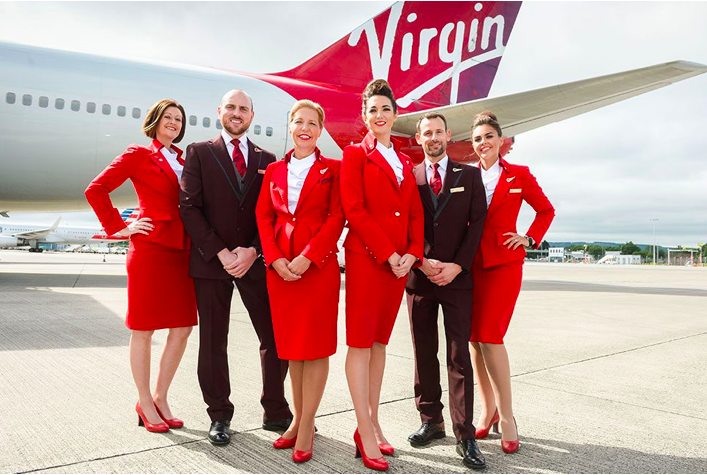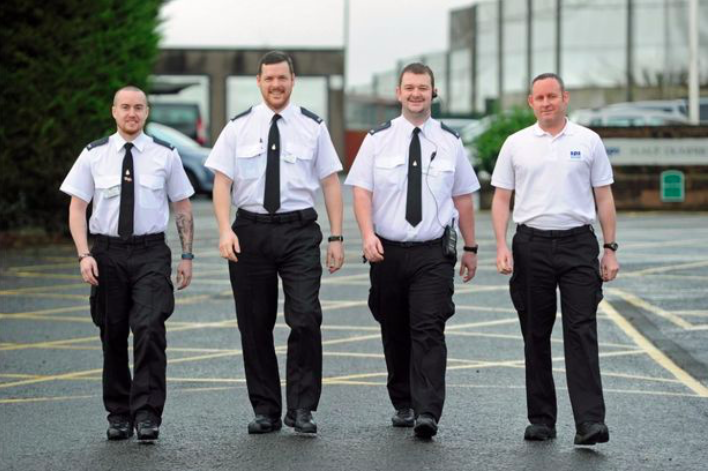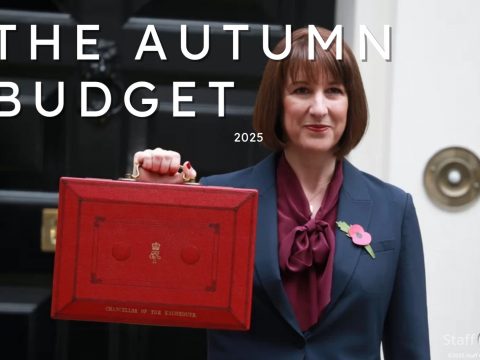- Contact us:
- 03300 535 600
- [email protected]

Quirky Perks
July 23, 2018
Can music in the workplace increase productivity?
September 21, 2018Courtesy of: Daily Feed
University life isn’t for everyone. More and more young people are being put off by rising tuition fees and the prospect of repaying student loans for the rest of their working days. However, it can often seem as though it’s impossible to make your way up the career ladder without a formal university degree – so much so that many people go to university without thinking about what their options are.

In fact, there are several roles you can choose from that don’t require a few years spent in higher education to do well in. If you don’t think that university life is for you, then never fear – we’ve put together this handy list of the top 21 highest-paying jobs that don’t require a degree as part of their job description.
The careers adviser at school might not be plugging them, but there are plenty of reliable and well-paying jobs out there that are within your reach, even if you don’t think that university is for you.
Whether you’re interested in writing or finance, there’s a good chance that you can earn some serious money in the career path of your choice without having to waste a ton of money on rent, food and booze.
In fact, you could even become a real-life Wolf of Wall Street and skip the years of crippling loan repayments in the process (just don’t get done for insider trading).
Scroll down the list below to find out what the top 21 highest-paying jobs are that you don’t need a degree for.
21. Cabin Crew Member – Average pay: £25,000
Whilst we’re fairly sure that your day-to-day experience of being a crew member will depend on the airline and flight routes you take each week, working as part of an aeroplane cabin crew can be a great opportunity for anyone who doesn’t fancy going down the university degree route.

However, bear in mind that you will be required to undergo full training before starting work with your chosen airline. This usually involves participating in a rigorous four-week training centre which includes online assessments as well as classroom learning.

Once you’re all set, you can expect to earn a starting salary of between £20,000-£25,000 a year. Don’t forget that you also get to travel the world and get paid doing it.
For long-haul flights, bigger companies such as Virgin and Emirates are known to provide their employees with accommodation and higher salaries.
20. Personal Assistant – Average pay: £25,003
Becoming a personal assistant is an option for any school-leavers who don’t want to go into higher education.
Whilst we’ve listed the average pay as £25,003, your salary can vary wildly depending on who you are working for (i.e. an individual or a company) and what your contracted hours are.
You’ll need some very specific personal attributes – personal assistants are generally required to be positive and organised individuals who are able to deal with multiple deadlines at once.
If that describes you though, then you could forge a rewarding career for yourself as a corporate PA. Companies value their administrative staff and you’d be surprised just how much personal assistants can be paid for managing the day-to-day schedules of CEO’s and other executives.
Just be aware that working as a PA for an individual can be a lot more demanding. Whilst the pay might be even higher than the salary offered by a company, you might found yourself having to sacrifice your spare time to attend to your employer’s needs instead of your own.
19. Prison Officer – Average pay: £27,037
Prison officers can earn themselves a tidy sum without needing to spend three years at university, so it’s definitely worthwhile considering this particular route if you’re looking to forge a career outside of academia.
You’ll have to be over the age of 18 to be able to work on the wards, and you’ll also have to pass a series of background checks. Ex-convicts are not able to apply. Rather than bringing a degree to the role, you will be required to take a Prison Officer Selection Test which will assess various skills including reading, writing, maths and even physical abilities.

Be mindful that working with prison inmates brings its own very specific set of challenges. However, if you do decide that becoming a prison officer is something that you want to pursue, you’ll be looking at a starting salary of around £18,720 which will rise to £33,000 at senior levels.
18. Ethical Hacker – Average pay: £30,071
The rise of the digital age has brought with it a number of different jobs, but ‘ethical hacker’ is definitely one of the stranger ones! This particular role requires a computer whizz to test company IT systems by hacking into them.
Nowadays, most highly-skilled hackers out there don’t have a university education and are largely self-taught, so this niche role definitely doesn’t require a degree.

Companies will pay ethical hackers an impressive £35,000 a year to start with, which could rise to as much as £90,000 over the course of your career. Definitely something to think about if you’re into coding!
17. Journalist – Average pay: £30,998
Surprisingly, you don’t actually need a degree to be a journalist.
Whilst there are many successful wordsmiths out there with a Cambridge or an Oxford education to their name, it’s certainly not a prerequisite to a career in journalism – all you need is the ability to find a good story and excellent written communication skills.

Caitlin Moran (pictured above) is a Times columnist and author, but she has no formal education to her name, let alone a university degree. Instead, she began her career writing for the music publication, Melody Maker, at the age of 16 after managing to win several writing competitions.
Another famous journalist without any university education is Julie Burchill (pictured above), who writes novels and is a regular columnist for the Independent. Julie once said: “As a child, I wanted only two things – to be left alone to read my library books, and to get away from my provincial hometown and go to London to be a writer. And I always knew that when I got there, I wanted to make loads of money.”
16. Fashion Industry – Average pay: £32,500
Any fans of The Devil Wears Prada will probably want to avoid a career in the fashion industry, but if you can’t get enough of the latest trends then you should definitely consider a creative role in fashion.
The clothing industry is one sector which really prefers experience over qualifications, so if you’re not into the university scene then you’re in luck.

However, do be aware that you’ll probably have to start off your career working for free or as a low-paid intern in the early days, before you can climb the fashion ladder to the top. Once you do, the salary is extremely competitive.

The average job in the fashion industry could land you up to £32,500 a year, so any fashion lovers out there might want to reconsider if they’re planning on heading straight to uni.
15. Emergency services – Average pay: £32,500
Working in the emergency services can be extremely demanding both mentally and physically.
However, for those people who want to rise to the challenge, it might be worth knowing that you don’t necessarily have to have a university degree if you want to become a police officer or a fire fighter.

You will need a high level of physical fitness and for each role you’ll have to pass some written tests as well. Your potential employers will be looking for some specific characteristics, such as the ability to quickly understand facts and procedures, as well as a calm and decisive demeanour in the face of stressful situations.

Starting salaries are generally around £20,000 but this will quickly go up – the average wage for an emergency services worker in the UK is around £32,500.
14. Marketing – Average pay: £32,698
The marketing industry is always looking for people who are creative and chock full of ideas. If that sounds like you, then you might be interested to know that not all marketing jobs require a degree in higher education.
 Most entry level roles begin with a starting salary of £18,000, which is perfect for anyone just leaving high school who thinks that the industry might be for them. There’s plenty of opportunity to progress your career if you decide to follow this particular path, but you’ll probably start out doing work experience or an internship before becoming a digital assistant or researcher.
Most entry level roles begin with a starting salary of £18,000, which is perfect for anyone just leaving high school who thinks that the industry might be for them. There’s plenty of opportunity to progress your career if you decide to follow this particular path, but you’ll probably start out doing work experience or an internship before becoming a digital assistant or researcher.

Once you reach a more senior role within the sector you could be looking at around £40,000-£50,000 for your services, depending on which company you work for. Some of these roles include Head of Marketing, Marketing Manager and Marketing Executive.
13. Military security – Average pay: £35,144
If you’re an ex-army man or woman, then you’re in luck – the top tier of military security is dominated by army veterans, and they’re making a tidy amount of money in the process.
However, whilst you don’t need a degree to find a role in private security, some form of experience is necessary.
Employers such as G4S and Securitas value your level of threat intelligence gained in the armed forces, rather than any paper qualifications you might hold. They’re also interested in what kinds of organisational and logistical experience you have.
If you’re currently looking for a job, then British Military Security might be the place to start looking. It was founded by two officers who had seen action in Afghanistan and Iraq, and they now do security work for festivals such as Glastonbury and Reading. Happy job hunting!
12. House manager – Average pay: £35,654
Most people would probably assume that working as a paid servant probably doesn’t earn you that much money – but you’d be dead wrong. Plus, waiting on a rich family doesn’t require any qualifications, only a hard-working attitude and a desire to succeed at what you do.
It’s true that cleaners and gardeners probably won’t make that much money, but if you work your way up the ranks and become a butler or house manager then you could be looking at upwards of £150,000 a year, depending on your employer.
You’ll have to be comfortable waiting on people who might not necessarily consider you their equal, but if they pay on time then the salary could be more than worth it!
11. Hazardous-waste manager – Average pay: £36,684
OK, so it might not be the most glamorous of occupations, but it certainly pays well at just over £36,000 a year.
And you don’t need a university degree to get started in the world of waste management, you just have to be prepared to work with dangerous chemicals every single day!
Major companies such as Veolia and Suez Environment dispose of the hazardous byproducts that are generated in hospitals, pesticide factories, petrol refineries and similar places. The average pay is so high because you have to use a high level of skill and care in order to handle these types of products properly – there’s also much more of a risk factor involved when you’re in close contact with them every single day.
However, it’s definitely a career path to think about if you don’t want to go to university, so why not make like Tony Soprano and get yourself a job in waste management?
10. HR manager – Average pay: £38,677
The world of human resources probably doesn’t get many people that excited, but it’s a great opportunity for people who don’t have a degree to earn themselves a tidy sum of money.
Plus it’s a useful role and ensures that everyone in the office is happy and that all of the admin gets done on time.
If you do decide to go into Human Resources, then there’s a good chance that you will need to earn yourself a qualification at some point down the road if you want to get further ahead in the industry. It might be worth having a look at the Chartered Institute of Personnel and Development for more information.
In the mean time, you could be a HR manager like Toby from The Office US in no time – we just hope you don’t have the same cringeworthy boss as him!
9. Chicken Sexer – Average pay: £40,000
OK, this one sounds like a joke, but trust us – you could be paid an average of £40,000 as a chicken sexer. And you won’t need any kind of experience or qualifications to do it. So what’s the catch?
Your job will involve checking up to 1,000 chicks per hour over the course of a 12 hour shift. The work is extremely monotonous and might send you a bit crazy, which is why most people simply aren’t interested in spite of the generous pay packet.
The only skills you’ll need are good eyesight, patience and nimble hands because you’ll be checking a hell of a lot of chicks each day.
Maybe more people would want to do it if they didn’t have to tell people they’re a chicken sexer?
8. Air traffic controller – Average pay: £41,011
Despite the complexity of their roles, air traffic controllers aren’t actually required to have a university degree if they want to start out in the industry.
Instead, the National Air Traffic Services (or NATS) runs courses for people who are interested in working within the air traffic control industry.
Depending on which type of area you want to specialise in, the course takes from 5 to 11 months to complete, and you’ll get paid a starting salary of just under £12,000 whilst you study. However, once you earn your qualifications the pay quickly rises to the industry standard of around £40,000 – well worth thinking about if you’re not interested in university life.
You’ll probably want to make sure that you enjoy doing maths, though, as the role is famously numbers-heavy. Once you’re qualified you’ll be bringing planes safely into the airport in no time.
7. Nuclear energy worker – Average pay: £44,494
That’s right – you can become a nuclear energy worker without having any higher education behind you, meaning that you could follow in the footsteps of Homer Simpson and start earning a nice annual salary for yourself in a nuclear power plant.
In this industry, most roles which don’t require degrees are still very specialised and you need to have developed specific skills in order to carry them out properly.
This means that instead of university, you should look into the courses offered by the National Skills Academy for Nuclear, which offers courses to help people qualify for certain roles.

All you’ll need to thrive is some creativity and a willingness to learn new things in order to progress from having to put up with unpaid internships to landing your very first high-paying role. If you find yourself working in a finance role then you could be earning up to £50,000 a year down the line.
6. Digital marketing – Average pay: £47,500
We’ve already taken a look at marketing, but did you know that digital marketing industry pays even more?
And once again, you won’t need an academic degree to get started because the sector is so fast-paced. If you’re familiar with terms such as SEO and Adwords then a career in digital marketing might just be for you.
All you’ll need to thrive is some creativity and a willingness to learn new things in order to progress from having to put up with unpaid internships to landing your very first high-paying role. If you find yourself working in a finance role then you could be earning up to £50,000 a year down the line.

Starting roles can include Features Intern and Content Writer (so you’ll need excellent written communication skills), whilst senior jobs may include Head of SEO or Digital Marketing Manager. Happy hunting!
5. Offshore oil-platform worker – Average pay: £49,278
Working as an offshore oil-platform worker is a great option for people starting off their career who don’t have a lot of strings attached (i.e. family commitments, strong ties to their local area).
This is because working on an oil rig requires you to stay there for several months at a time.
It’s also a job which can involve dangerous and tough work, often for long hours at a time. For example, did you know that offshore rig workers at Maersk have to operate on a 12-hour shift system? Whilst you don’t need a degree to work offshore – and you will earn a lot of money in the process – you’ll have to be 100% certain that this kind of lifestyle is for you.
4. Commodities trader – Average pay: £53,003
If you want to emulate the success of Bud Fox and Gordon Gekko in Wall Street, then you might want to consider a career as a commodities trader.
There are still plenty of traders working in London who joined the financial services straight out of high school, so it’s definitely a viable option when thinking about what you’d like to do instead of university.
Like most jobs in finance, being a commodities trader is well-paid and could be worth doing for a few years until you decide what you really want to do in life. In terms of qualifications, you’ll want to make sure you’re good at maths and personality-wise it’s probably an advantage to have the gift of the gab.

However, you will also need to check specific industry qualifications for the role you’re interested in. Traders have to be approved by the Financial Conduct Authority, and the Chartered Institute for Securities and Investment offers courses for people interested in becoming bond traders.
3. Accountant – Average pay: £56,000
Accountancy gets a bad rep for being boring sometimes, but something that’s never been in doubt is just how well it pays. Plus, you might be surprised to learn that you don’t actually need a degree to become a qualified accountant.

However, most employers will require you to study for an AAT qualification before you can progress, so you will have to do some studying beforehand. Once that’s over with, though, you’ll be looking at a salary of around £35,000 at the start of your career, moving up to £100,000 if you make it to Finance Director status!

Typical day-to-day tasks include looking after business accounts, providing clients with budgeting advice, filling out tax returns and other related activities.
2. Mining construction – Average pay: £56,260
Mining construction has a large average pay salary for very similar reasons to the oil industry.
If you decide to go for a job in mining, you’ll have to be aware of the fact that it can take up several months of your life at a time. Plus, a lot of the industry is based overseas so you’ll more than likely be required to relocate as and when this becomes necessary.

In terms of qualifications, you don’t need a degree to get a job in mining construction, but some experience in manual labour or building work would be useful. It’s also possible that some entry-level jobs will require you to obtain specialised licences that you let operate things like bulldozers and other heavy machinery.

However, with an average pay packet of just over £56,000, it’s definitely worth thinking about if you’re not keen on spending three years or more in higher education.
1. Equities trader – Average pay: £59,475
Like commodities trading, any youngsters out there might be interested to know that you can still make your way into equities without a university degree – you just need to be a good salesman.

However, you will need to get approval from the FCA and CISI in order to start work. Plus you’ll need to obtain a CISI Capital Markets certification – again this can be done without a degree, but you will need to study in order to pass an ethics test.

Just make sure that you don’t do a Wolf of Wall Street and you’ll be just fine – the annual salary of £59,000 speaks for itself really!
Which job would you choose instead of going to university? Let us know in the comments section below!



























